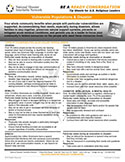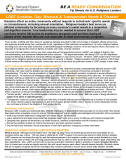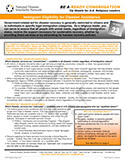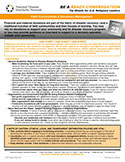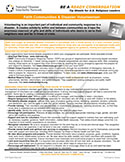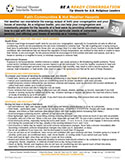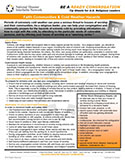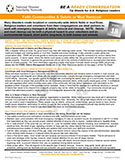NDIN Tip Sheet: Competency Guidelines: Sheltering & Mass Care for Buddhists
These guidelines are provided to inform cultural competency and reasonable religious accommodation mandates for U.S. Mass Care providers, and to assist staff and volunteers in competently meeting the needs of Buddhists during disaster response or recovery operations.


